Educational websites

deutsch.intro – An application to learn German for everyone without previous knowledge —
deutsch.info will gain a new introductory course of the German language for complete beginners: "deutsch.intro". It will be innovative, interactive and user-friendly, so that students with different IT skills, interests and needs can participate.We want to help beginners quickly reach a level of competencein German. That should allow them to communicate more effectively by training their ability to create sentences independently, even with a very limited vocabulary.Just like all other resources on deutsch.info, the new course will be available for free.It is intended for everyone who is interested in learning German and who still finds the A1 course on deutsch.info too difficult. The content will be available in 22 languages. See more on
https://deutsch.info/intro

>TestU Online – free portal of tests for education
TestU Online – free portal of tests for education —
TestU Online is a free of charge, multilingual, online e-learning platform enabling easy and fast creation of various quizzes, tests, and exercises primarily intended for learning languages. The platform users will be mainly teachers, coaches/lecturers as well as their pupils, who are attending elementary schools, or other forms of education, whether formal or informal. The reasons for creating such a platform can be explained by the necessity for allowing a young generation to access free education despite their socio-economic, religious, or national background, geographical limitations, or even various kinds of disabilities.

>Durch der-die-das mit viel Spaß – App for learning German articles and declinations
Durch der-die-das mit viel Spaß – App for learning German articles and declinations — Learning the articles and declinations of the German language is a difficult task. Everyone who ever learned German knows this! With this application we want to make it easier to learn articles by allowing it to happen in a playful manner. The project has been running since October 2019 and the app will be ready in September 2021.
Kuarki - Traveller between wor(l)ds is a free-of-charge application for multilingual children from the age of five. It helps children develop their vocabulary and practice reading and writing. Children who use one language at home and another in school frequently suffer from gaps in their vocabulary in both of those languages. This app aims to help bridge these gaps, while also providing users with new knowledge in an interesting and fun way. The app also helps monolingual children who are learning a foreign language and would like to improve their reading comprehension capacities.

Vortoj – Making learning words fun with a healthy dose of movement! — New PC game from E@I about accuracy, languages and having fun. Vortoj (Esperanto translation of “Words”) allows you to practice words of languages you’re learning and to gain confidence in their spelling. As an added bonus, you get to have lots of fun with your colleagues, friends and students in the two player version! Language teachers will appreciate Vortoj’s dictionary editor thanks to which you can finetune the word lists for the needs of students. The game combines a healthy competitiveness with a lot of fun and you get to move as well as put your memory to the test.

Computer for everyone — A course designed for people who do not possess basic computer skills, but who would like to. The course will be run at a total of 10 training sessions in 8 towns in the Trenčín and Nitra regions of Slovakia, in which participants will learn how to use a computer, use word processing software, create spreadsheets and presentations, and how to use the Internet effectively. The course is particularly targeted at workers who will be able to progress their careers with the help of the new skills provided. At the end of the project, all teaching materials will be released as an online course.
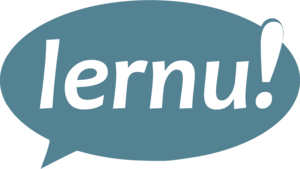
Multilingual Accelerator — The goal is to create a "multilingual accelerator" that will allow children to become multilingual more quickly and to trust their language abilities. The core idea is that learning Esperanto with a limit of 200 morphemes can boost the abilities of children in learning other languages.
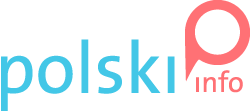
Polish Online — The interactive e-learning platform polski.info will help you to learn the basic elements of Polish - the second most widely spoken Slavic language after Russian - and all of that online, effectively and for free. The platform is designated especially for foreigners, who would like to start speaking Polish and broaden their horizons about Poland - a country imbued with rich European history and culture.

Reflections — The purpose of this project is to offer teachers educational strategies for cosmopolitan engagement, diversity education, philosophical inquiry as well as the practical employment of these principles in classrooms. The materials will support the acquisition of skills needed for active participation in democratic processes, critical thinking and living in diverse societies, as well as topics concerning human rights, climate change, globalization, fair trade and consumption. A continuation of the project is being conducted and it is supported by the Erasmus+ program.

Deutsch.info – didactic tools for schools — The goal of the site was to offer a free German course, for use not only in schools and universities, but also for those who wish to self-study. Thanks to this website, it is now possible to learn German without the need of a teacher. This project (2016-2018) can help German teachers who are in search of appropriate teaching materials for their students. There is information about the usefulness of CALL-method in schools. Every lesson offers downloadable exercises and games crafted for a school environment.
Traveller between wor(l)ds
This project (2016-2019) is a free-of-charge application for multilingual children from the age of five. It helps children develop their vocabulary and practice reading and writing. Children who use one language at home and another in school frequently suffer from gaps in their vocabulary in both of those languages. Although they usually get acquainted with the new language quickly, it is often at the expense of their native tongue. This app aims to help bridge these gaps, while also providing users with new knowledge in an interesting and fun way. For example, it contains interesting bilingual texts about topics the children will have come in contact with at school. This way, the child progresses and expands their vocabulary in both languages at the same time. The app also helps monolingual children who are learning a foreign language and would like to improve their reading comprehension capacities. A website with useful information is also being prepared for the parents and teachers of multilingual children.

Russian Online — A website for self-learning Russian, modeled on the successes of Slovake.eu, Deutsch.info, Mluvtecesky.net and other websites. It contains a complete course for levels A1 and A2, dictionaries, grammar articles, and listening and reading materials. For business people, there is a preparatory section with useful information about business in Russia. The project is being built under the Erasmus+ programme.

IpuS – Let’s talk about Porno — This provocatively named project aims to draw attention to the dangers of online pornography and sexting for children and teenagers. Sexting is the mutual sending and receiving of intimate photos of oneself or others which, though often considered safe by young people, can hinder healthy development and lead to cyber-bullying (sharing of intimate images online, pressure/blackmail, persecution). The project is aimed primarily at parents wanting their children to be able to use the internet safely and responsibly.

>Schau hin
Schau hin — This project acts as a continuation of the project "Cybermobbing", extending the content of cyberhelp.eu to cover modern issues such as sexting and personal data protection, problems which pose the a serious threat to children and young people. The website contains educational modules for social educators and anyone else who works with young people.
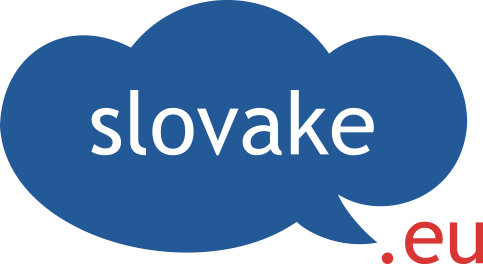
Slovake.eu — A multilingual website to teach the Slovak language to foreigners. The project is supported by the EU agency EACEA ("Lifelong learning" program) and was launched in March 2011. The website was built on the basis of experience gained in
lernu.net and other Internet projects. The second phase of the project began in November 2013; a B-level course and some new features will be added.
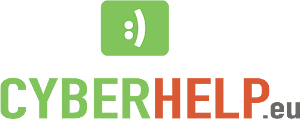
Cybermobbing — "Cybermobbing" is one of our projects which are unrelated to learning languages. During two years, a multilingual website will be created with instructions, information and warnings about the dangers of the digital world, primarily intended for children and teenagers. This project is completely compatible with the activities of E@I, which is specialized in "Education on the Internet" — thus educating young people about the dangers of the Internet (and the people who misuse it) is a really appropriate and relevant initiative in today's world.

CZKey — This project comprises the creation of a website to teach a the Czech language at the general A1 and A2 levels, as well as through a B1 level course specially designed for Slovaks and future doctors. The coordinator, the language centre of Masaryk University in Brno (Czech Republic), was inspired by the E@I projects for
German and
Slovak. The centre also helped to translate
slovake.eu into Czech, which gave them the idea to create a similar project for their own language, which is very similar to Slovak. It will be possible to learn Czech through several languages.

Lingvo.info — A multilingual educational website will cover topics of languages, promote existing web-based courses, and demonstrate that languages can be both fun and useful.

Global E-learning — A multilingual online course which aims to provide information about issues related to our globalised and interdependent world.

>Speak and Learn
Speak and Learn — A multilingual interactive audio-visual application for learning languages. The application will enable learners to learn the necessary language at level A1 and possibly to also access the A2 level.

lernu! — Home of a multilingual Esperanto course, aimed at those who are interested in learning Esperanto. As well as courses at different levels, the site contains dictionaries, a grammatical overview, spoken stories with pictures, an instant messenger and more.

Deutsch.info — Multilingual website for teaching German to non-German speakers. The project was supported by the EU agency EACEA ("lifelong study" program) and launched in 2013. The website was created based on the experience with lernu.net, slovake.eu and other Internet projects. There were 8 partners from 6 countries participating in the project, and it was available in 9 languages when it was launched.
About Esperanto

Zamenhof.info — Multilingual website about the life and work of L.L. Zamenhof, created on the occasion of the 100th anniversary of his death.

Prague Manifesto — This website aims to present a significant document of the Esperanto movement - the Prague Manifesto, on its 20th anniversary. The website was created and launched for the Zamenhof Day 2016 by an Italian Esperantist, graphic designer and computer programmer Edoardo Nannotti during his European Voluntary Service at E@I.
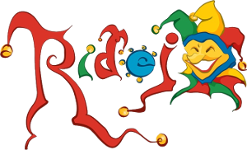
Ridejo — Ridejo is a website for jokes and memes in Esperanto. Visitors to the site can upvote the ones that make them laugh, and also upload their own content. We look forward to your submissions!

Drakoj — This website explains the basic rules of the fantasy game Pathfinder in Esperanto. Pathfinder is a table role-playing game in which the Game Master describes the events of the game world, and the players take turns describing how their characters respond.

Komputeko — A portal of computer related terms in as many languages as possible, created in order to promote correct language usage and combat the hegemony of American English in technological jargon vocabulary, which often become corrupted anyway.
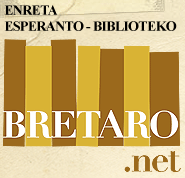
Bretaro — An online electronic archive of Esperanto materials such as books, documents and pictures. The aim is to conserve works with a literary value. Bretaro.net only contains works for which author rights or copyrights are not valid anymore, or that the author her/himself allowed to be used freely in electronic format.

Reta PIV — A free online version of the "Plena Ilustrita Vortaro de Esperanto" was launched on the 4th of April, 2012. This electronic version of the famous dictionary "PIV" was possible thanks to the collaboration of SAT and E@I and the donations of Esperantists.
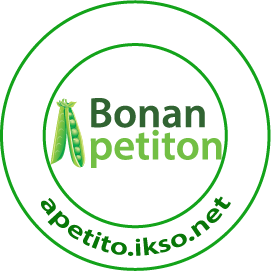
Bonan Apetiton — Apetito is a new website about cooking in Esperanto. It contains recipes as well as articles about cooking, healthy food and related topics. The most visible feature of Apetito is the possibility for its users to add their own recipes or interesting articles about cooking and food.

Toki pona — Toki Pona is a philosophical language with about a hundred speakers worldwide. Unlike other planned languages, its aim is not to be an international language, but to be used as a means of communication built on the most basic ideas, without the complications of contemporary life. In July 2013, the first printed textbook was published. This websites give you all 76 lessons of the book with other materials that cannot appear in the book.
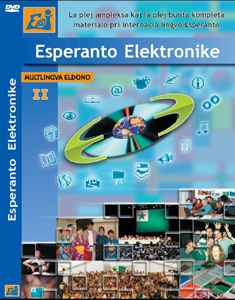
Esperanto Elektronike — This DVD is the most comprehensive and colourful resource about the international language Esperanto. It caters for everyone: for Esperantists, it provides lots of interesting E-resources (books, articles, music...), for non-Esperantists, it provides information about Esperanto and contains courses, dictionaries etc. It is now also available online.
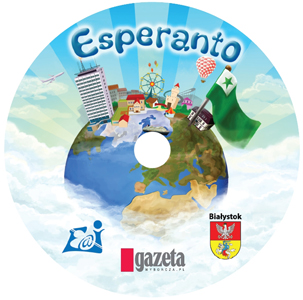
CD “Esperanto” — This CD, the product of a collaboration between E@I and the city of Białystok, was released with the Polish daily newspaper Gazeta Wyborcza on September 10th 2008, and remains the most published E-resource about Esperanto (over 400,000 copies). The disc is in two languages, Polish and Esperanto, and aims to present Esperanto to the general public through fun games. The content is now available online.
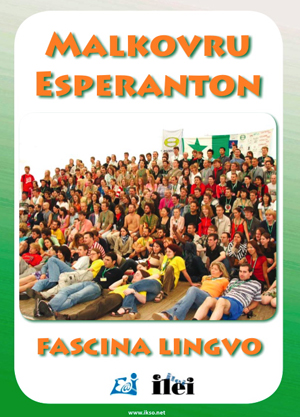
Discover Esperanto — The web page for the project behind the brochure Discover Esperanto, a modern brochure about Esperanto published in multiple languages. It includes information about the history of the language, its modern-day use, important organisations, and current events. Size B5, colour, 24 pages, published in 15 languages. Available in PDF.
Other projects

>Three pillars of the PL+DE+SK bridge to exchange practices to strengthen the activities of the organizations
Three pillars of the PL+DE+SK bridge to exchange practices to strengthen the activities of the organizations — A two-year project of strategical partnership with the Center for Intercultural Education (CEM, Poland) and ICH Herzberg (Germany) that took place in 2016-2018 to train activists both on the language and social levels. Project number: 2016-1-PL01-KA204-026528.
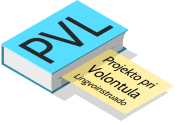
Good practices in language teaching — Erasmus+ project together with TEJO (World Esperanto Youth Organization) and coordinated by ĈEJ (Czech Esperanto Youth) that took place in 2017-2018. The goal was to train Esperanto teachers by teaching them how to teach properly.
European Voluntary Service

European Voluntary Service — E@I has been hosting young people from various, mostly European countries since 2013, thanks to support from Erasmus+.
Currently not updated

>ESPA EST 2.0
ESPA EST 2.0 — A project to teach the Spanish language (with an emphasis on business language) and deliver practical advice for business with Spanish companies. E@I is a partner in the project, responsible for the Slovak and Czech parts. The project is supported by the EU agency EACEA ("Lifelong learning" program) and with the participation of partners from Bulgaria, Spain, Latvia, Poland, Romania, and Slovakia.

Esperanto 55+ — This two-year (2009-2011) project is aimed towards older people, and its main goal is to prepare a team of Esperanto teachers for Universities of the Third Age. New teachers began to teach in Polish universities in autumn 2011.

Lingva Prismo — A website about language diversity which presents a variety of the world's languages and alphabets and encourages the learning of facts about languages through an online quiz. The original website is being rebuilt within the framework of the project Lingvo.info.

>Interkulturo
Interkulturo — Interkulturo is a project which facilitates cultural exchange between groups located throughout the world - to get in touch, get to know each other and exchange questions, doubts, knowledge, interests.

Nitobe-centro — The Nitobe Center for language democracy promotes public debate about international communication and equal language politics, particularly in the European Union.

Esperanto-aktuale — A multilingual free website and information portal about the international language Esperanto and its culture: grammar, history, movement, and so on. Much of the page consists of news about Esperanto, language politics, and related topics. In collaboration with many Esperantists across the world, we are striving to include in this page the most important and current information about everything that Esperanto speakers deem important.








































